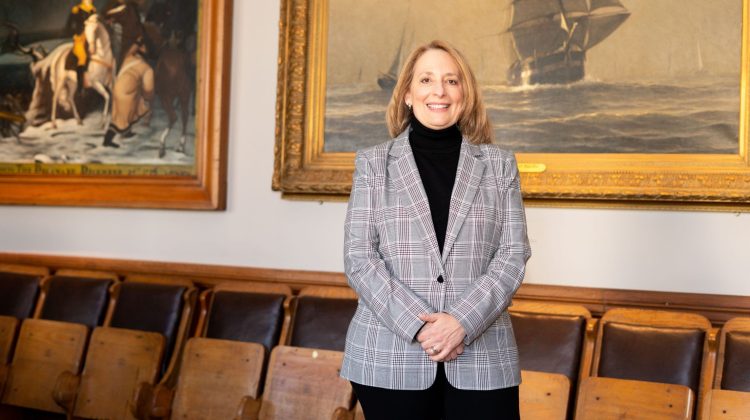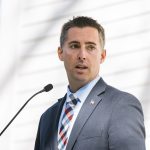MARBLEHEAD — Lori Ehrlich’s path from environmental activist to state legislator and now to a leader in journalism is a testament to her lifelong commitment to civic engagement and community resilience.
After 14 years in the Massachusetts House of Representatives, where she championed environmental protections, labor rights, and local journalism, Ehrlich has embarked on a new chapter as the inaugural executive director of a new journalism initiative at Boston University. The initiative, founded in collaboration with BU Journalism Chair Brian McGrory, aims to support and sustain local news across New England.
Ehrlich’s interest in the health of journalism didn’t emerge overnight. While serving as a legislator, she began noticing a troubling trend.
“The newspapers were getting thinner and, in some cases, closing,” she recalled. “When there’s no newspaper, there’s something lost in the character of a community, the ability for people to stay informed.”
This observation led Ehrlich, along with State Sen. Brendan Crighton, to file a bill establishing the Massachusetts Commission on Local Journalism. That 23-member body was tasked with researching the rapid contraction of local coverage and proposing policy solutions.
“Without an informed populace, democracy can’t flourish,” Ehrlich said, underscoring how deeply she views journalism as foundational to democratic life
Ehrlich’s transition to academia follows her federal service as Region 1 administrator for the Federal Emergency Management Agency under President Joe Biden. In that role, she oversaw emergency management for all six New England states, bringing her legislative experience and environmental expertise to the federal level.
Before her appointment, Ehrlich had built a reputation as a pragmatic reformer in Massachusetts politics, advocating for carbon emission reductions, pipeline safety, and sustainable economic growth. She was affectionately nicknamed the “Mother Grizzly from Marblehead” for her fierce environmental advocacy.
Now, her focus has shifted from environmental resilience to information resilience.
“When my federal service was up, I heard from Brian McGrory,” she said. “He told me about this new initiative to reimagine how local journalism can serve communities better, to support emerging outlets, build collaboration, and provide training and shared resources.”
The initiative Ehrlich leads is still in its early stages, “building the plane while we’re flying it,” she joked.
Its mission is clear: to foster collaboration among local news outlets and help develop sustainable models for community journalism. With partners like Steve Greenlee and Jason Tuohey, both veterans of The Boston Globe, the program will connect a network of local and regional news organizations, starting in Massachusetts and expanding throughout New England.
While the initiative’s formal name is still being finalized, its reach already extends “as far north as Vermont,” Ehrlich noted. The team plans to study and support different models of community news, from nonprofit newsrooms to university partnerships, to understand what works and how to replicate success.
“There are different models being experimented with right now,” Ehrlich said. “We’ll have a living laboratory of ideas out there, allowing these programs to share best practices and strengthen the overall network of journalists and outlets.”
Ehrlich speaks about local journalism with the same urgency she once applied to environmental issues. She describes the rise of “ghost papers,” local outlets hollowed out by consolidation and cost-cutting, leaving communities without coverage of city councils, school boards, or town meetings.
“Without reporters on the beat, there’s no way to keep yourself informed, to hold officials accountable, or to participate meaningfully in public life,” she said.
Her argument echoes what scholars and journalists alike have warned: that news deserts — regions without robust local coverage — erode trust, civic engagement, and even voter turnout.
Ehrlich sees her new role as an extension of her public service, ensuring that democracy is nourished by access to credible, community-based information.
“Local news provides a level forum for us to engage with each other and govern collectively,” she said. “The stakes have never been higher for our communities and our democracy.”
In this new role, Ehrlich brings together her skills as an organizer, policymaker, and advocate.
Before her political career, she founded two environmental nonprofits that successfully shut down a coal-burning power plant in Salem and restored the Wenham Lake watershed.
“That ability to organize,” she said, “is something I’m drawing upon as I work to build this organization.”
She added, “People still need news. They always will. The work journalists do is very important. It’s not that grim — there’s hope.”





